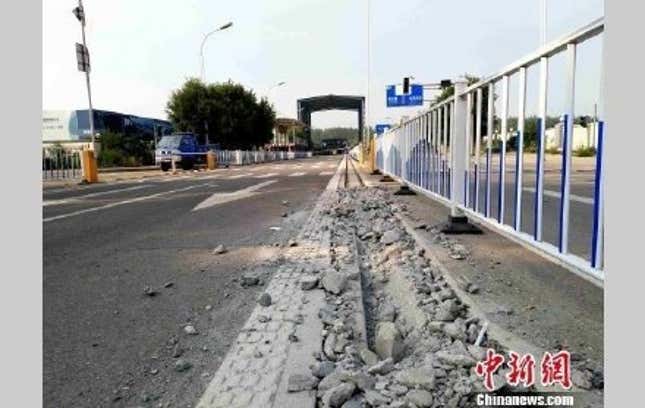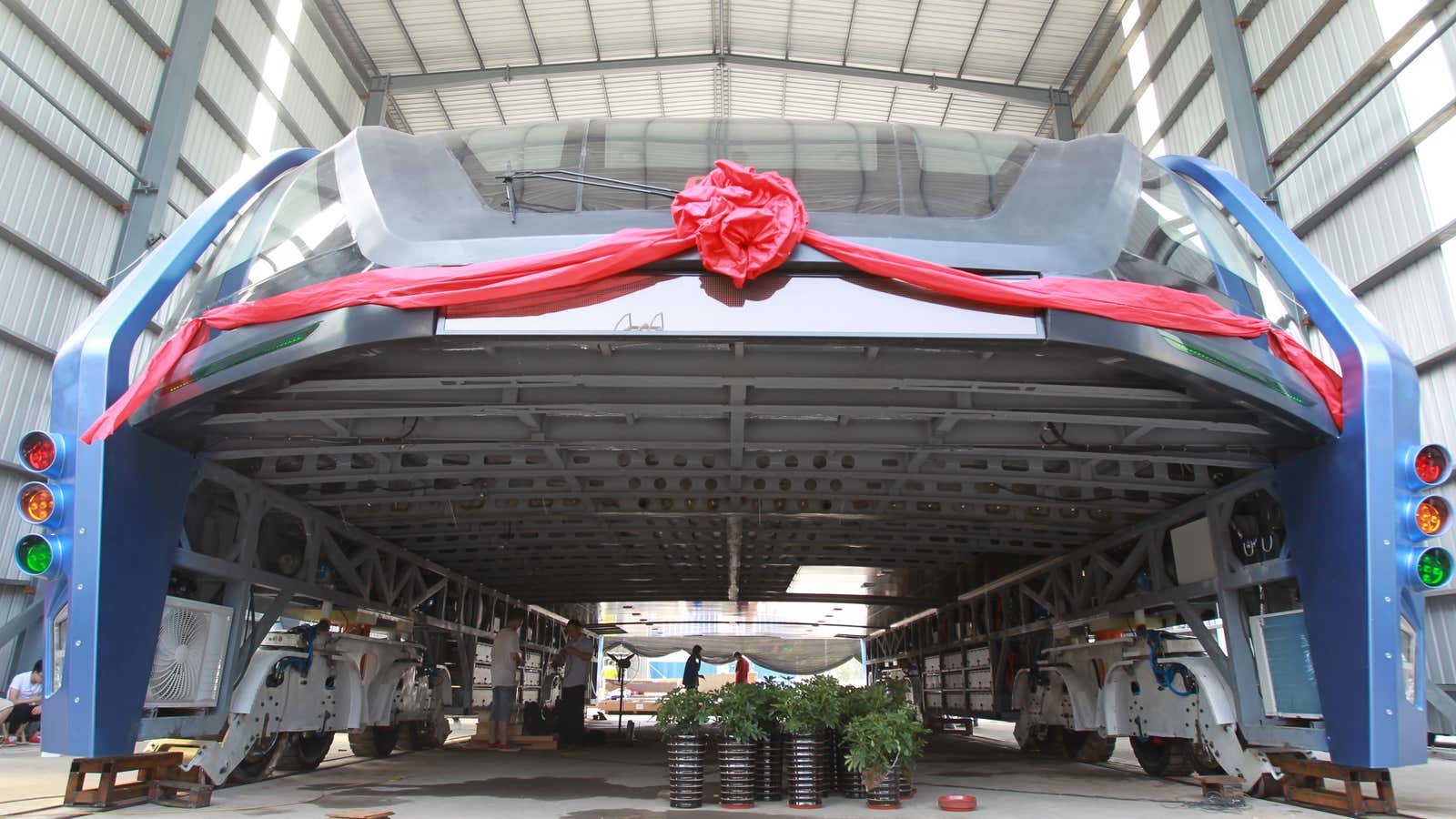It’s the end of the road for China’s giant “car-eating” bus.
On June 21, the transit-elevated bus (TEB) was relocated to a nearby parking garage, and local officials said they would remove the 300-meter tracks it ran on by the end of the month, reported state-owned news publication Chinanews (link in Chinese). The bus, first dreamed up by two US architects about half a century ago, had run in a test trial on Aug. 2 last year (it’s unclear how many more times it was in operation). Hebei province’s port city Qinhuangdao had installed exposed electric tracks for the bus’s test run in a bid to lure potential investors (link in Chinese).
Since then, it has largely spent its time parked under a shelter, occupying about half of a stretch of a major road. The local government had unsuccessfully sent multiple requests to TEB’s developer for follow-up plans, said Chinanews, citing unidentified officials. The website of the bus developer, Beijing-based TEB Technology Development, was taken down, and its CEO Bai Zhiming has not responded to an interview request on Weibo, a Twitter-like social network in China.

The bus was developed with the hope of reducing traffic jams in some of China’s most congested cities. Other nations that face similar problems have also expressed an interest in the project. India’s prime minister Narendra Modi, for example, had reportedly asked his road transport ministry to look into the project, according to Times of India.
Many transportation experts were worried about the viability of the project from its earliest stages, including one of the concept creators, Craig Hodgetts. An architecture professor at the University of California in Los Angeles, Hodgetts told Quartz last August that the TEB appeared be an “immature project” with some “fundamental problems.” He mentioned, for example, the tight space potentially having a psychological effect on drivers who might respond by braking when driving under the bus.
